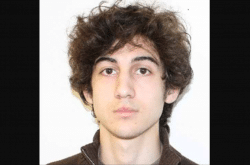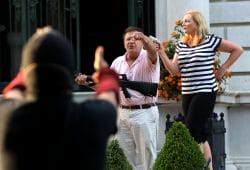A federal appeals court on Friday overturned the death sentence for Dzhokhar Tsarnaev, one of the brothers convicted in the April 15, 2013 bombing of the Boston Marathon.
Court documents obtained by American Military News indicated the panel reversed several convictions in Tsarnaev’s case, and ordered a lower court to do a new trial on other counts for which Tsarnaev previously received the death penalty, but wrote “make no mistake: Dzhokhar will spend his remaining days locked up in prison, with the only matter remaining being whether he will die by execution.”
The April 15, 2013 attack on the Boston Marathon saw two pressure cooker bombs explode, killing three people injuring hundreds more. Tsarnaev’s brother Tamerlan was also alleged to have been involved in the bomb plot. He was killed in a gun battle with police days after the bombing attack.
Tsarnaev’s lawyers had argued that intense media coverage harmed Tsarnaev’s right to a fair trial and that two jury members had shared derogatory views of Tsarnaev prior to the trial. One of those biased jury members even ended up as the foreperson during Tsarnaev’s trial.
During his initial trial, Tsarnaev’s legal team also requested a change of venue, arguing the jury pool in the area had been particularly heavily biased by the news event.
In a partially concurring opinion, Judge Juan R. Torruella argued the court should have also considered appeals by Tsarnaev regarding the venue for the trial.
“Although the impact of the defendant’s crimes was felt nationally and internationally, the destruction was acutely felt by the residents of the Eastern Division” of Boston, Massachussetts, Torruella wrote. “The prospective jurors and their loved ones, and the communities themselves, were all victims of these disturbing acts of terror. In addition to those killed and maimed by the bombings, millions in Greater Boston witnessed firsthand the carnage at the finish-line, knew someone directly impacted by the bombings, were ordered to shelter in place, had their houses searched by law enforcement with weapons drawn, saw their neighborhoods occupied by military personnel or were otherwise affected by the events. The physical, psychological, and emotional trauma of these events was long felt locally.”
Torruella also noted an unprecedented outpouring of support in the Boston community following the bombing attack, including the “BOSTON STRONG” social media campaign “and to a previously unparalleled extent, the community participated in the identification and capture of the two bombing suspects.”







